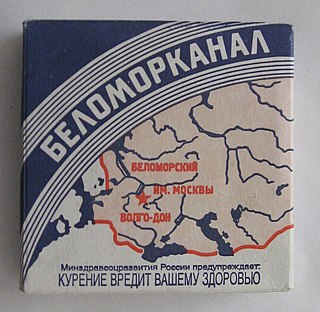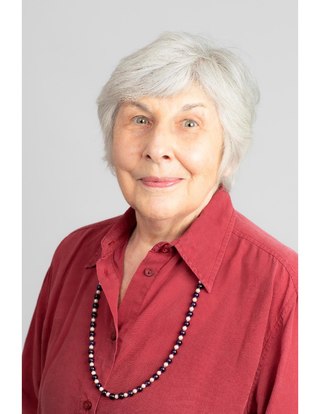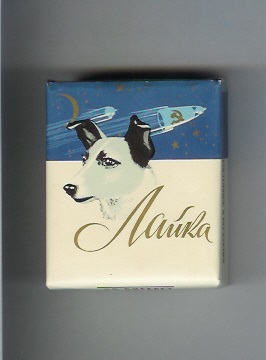Related Research Articles

A cigarette is a narrow cylinder containing a combustible material, typically tobacco, that is rolled into thin paper for smoking. The cigarette is ignited at one end, causing it to smolder; the resulting smoke is orally inhaled via the opposite end. Cigarette smoking is the most common method of tobacco consumption. The term cigarette, as commonly used, refers to a tobacco cigarette, but the word is sometimes used to refer to other substances, such as a cannabis cigarette or a herbal cigarette. A cigarette is distinguished from a cigar by its usually smaller size, use of processed leaf, and paper wrapping, which is typically white.

Tobacco smoking is the practice of burning tobacco and ingesting the resulting smoke. The smoke may be inhaled, as is done with cigarettes, or simply released from the mouth, as is generally done with pipes and cigars. The practice is believed to have begun as early as 5000–3000 BC in Mesoamerica and South America. Tobacco was introduced to Eurasia in the late 17th century by European colonists, where it followed common trade routes. The practice encountered criticism from its first import into the Western world onwards but embedded itself in certain strata of a number of societies before becoming widespread upon the introduction of automated cigarette-rolling apparatus.

Craven A(stylized asCraven "A") is a British brand of cigarette, currently manufactured by British American Tobacco under some of its subsidiaries. It was originally created by the Carreras Tobacco Company in 1921 and made by them until its merger into Rothmans International in 1972, who then produced the brand until Rothmans was acquired by British American Tobacco in 1999.

Smoking bans, or smoke-free laws, are public policies, including criminal laws and occupational safety and health regulations, that prohibit tobacco smoking in certain spaces. The spaces most commonly affected by smoking bans are indoor workplaces and buildings open to the public such as restaurants, bars, office buildings, schools, retail stores, hospitals, libraries, transport facilities, and government buildings, in addition to public transport vehicles such as aircraft, buses, watercraft, and trains. However, laws may also prohibit smoking in outdoor areas such as parks, beaches, pedestrian plazas, college and hospital campuses, and within a certain distance from the entrance to a building, and in some cases, private vehicles and multi-unit residences.

Belomorkanal is a Russian brand of papirosa (cigarettes), originally made by the Uritsky tobacco factory in Leningrad, Soviet Union.

Thank You for Smoking is a 2005 American satirical black comedy film written and directed by Jason Reitman and starring Aaron Eckhart, based on the 1994 satirical novel of the same name by Christopher Buckley. It follows the efforts of Big Tobacco's chief spokesman, Nick Naylor, who lobbies on behalf of cigarettes using heavy spin tactics while also trying to remain a role model for his 12-year-old son. Maria Bello, Adam Brody, Sam Elliott, Katie Holmes, Rob Lowe, William H. Macy, J. K. Simmons, and Robert Duvall appear in supporting roles.

Java is a Russian brand of cigarettes launched in 1966, currently owned and manufactured by British American Tobacco Russia, a subsidiary of British American Tobacco.

A papirosa is an implement for tobacco smoking, a variant of cigarettes. It consists of a hollow cardboard tube extended by a thin paper tube filled with tobacco. The cardboard tube acts as a cigarette holder and is called in Russian as such: Russian: мундштук, from German Mund+Stück, literally, "mouthpiece"

Ronald Grigor Suny is an American-Armenian historian and political scientist. Suny is the William H. Sewell Jr. Distinguished University Professor of History Emeritus at the University of Michigan and served as director of the Eisenberg Institute for Historical Studies, 2009 to 2012 and was the Charles Tilly Collegiate Professor of Social and Political History at the University of Michigan from 2005 to 2015, William H. Sewell Jr. Distinguished University Professor of History (2015–2022), and is Emeritus Professor of political science and history at the University of Chicago.

Smoking is a practice in which a substance is combusted and the resulting smoke is typically inhaled to be tasted and absorbed into the bloodstream of a person. Most commonly, the substance used is the dried leaves of the tobacco plant, which have been rolled with a small rectangle of paper into an elongated cylinder called a cigarette. Other forms of smoking include the use of a smoking pipe or a bong.
Stanton Arnold Glantz is an American professor, author, and tobacco control activist. Glantz is a faculty member at the University of California, San Francisco (UCSF) School of Medicine, where he is a Professor of Medicine (retired) in the Division of Cardiology, the American Legacy Foundation Distinguished Professor of Tobacco Control, and former director of the Center for Tobacco Control Research and Education. Glantz's research focused on the health effects of tobacco smoking.

Sheila Mary Fitzpatrick is an Australian historian, whose main subjects are history of the Soviet Union and history of modern Russia, especially the Stalin era and the Great Purges, of which she proposes a "history from below", and is part of the "revisionist school" of Communist historiography. She has also critically reviewed the concept of totalitarianism and highlighted the differences between Nazi Germany and the Soviet Union in debates about comparison of Nazism and Stalinism.

Tobacco politics refers to the politics surrounding the use and distribution of tobacco.

Tobacco has a long cultural, economic, and social impact on the United States. Tobacco cultivation in Jamestown, Virginia, in 1610 lead to the expansion of British colonialism in the Southern United States. As the demand for Tobacco grew in Europe, further colonization in British America and Tobacco production saw a parallel increase. Tobacco use became normalized in American society and was heavily consumed before and after American independence.
Smoking in China is prevalent, as the People's Republic of China is the world's largest consumer and producer of tobacco. As of 2022, there are around 300 million Chinese smokers, and 2.4 trillion cigarettes are sold there every year, 46% of the world total.

Regulation of electronic cigarettes varies across countries and states, ranging from no regulation to banning them entirely. As of 2015, around two thirds of major nations have regulated e-cigarettes in some way. A 2023 report by the World Health Organization (WHO) found that 34 countries had banned the sale of e-cigarettes.

"Apollo-Soyuz" was a Soviet brand of cigarettes which were manufactured by the "Java Tobacco Factory" in Moscow, Soviet Union, and Philip Morris USA in the United States. Today it is owned and manufactured by the Krasnodar Tobacco Factory, a Russian subsidiary of Altria.

Laika was a Soviet brand of cigarettes, which was manufactured by various Soviet tobacco companies, but most notably the "Tabachnaya Fabrika Dukat Moscow" and the "Tabachnaya Fabrika No.1 Leningrad". The brand was named after the USSR space dog Laika, the first animal launched into orbit.
Lise Morjé Howard is a political scientist from the United States (U.S.), an expert on United Nations peacekeeping, war termination, civil wars, and American foreign policy. She is currently a Professor of Government and Foreign Service at Georgetown University and President of the Academic Council on the United Nations System (ACUNS).
Smoking in Russia includes the use of tobacco in Russia and its predecessor states, as well as tobacco farming, the tobacco and cigarette industries, impact on health, and government regulation. English merchants introduced tobacco to Russia in the 1560s.
References
- 1 2 Trish Starks Distinguished Professor and Director of the Arkansas Humanities Center
- 1 2 Tricia Starks
- ↑ "Book Review: 'Cigarettes and Soviets' Examines Social and Political Impact of Cigarettes in Former USSR". 23 January 2023.
- ↑ Kojevnikov, Alexei B. (2023). "Cigarettes and Soviets: Smoking in the USSR by Tricia Starks (review)". Bulletin of the History of Medicine. 97 (3): 518–520. doi:10.1353/bhm.2023.a915275. Project MUSE 915275.